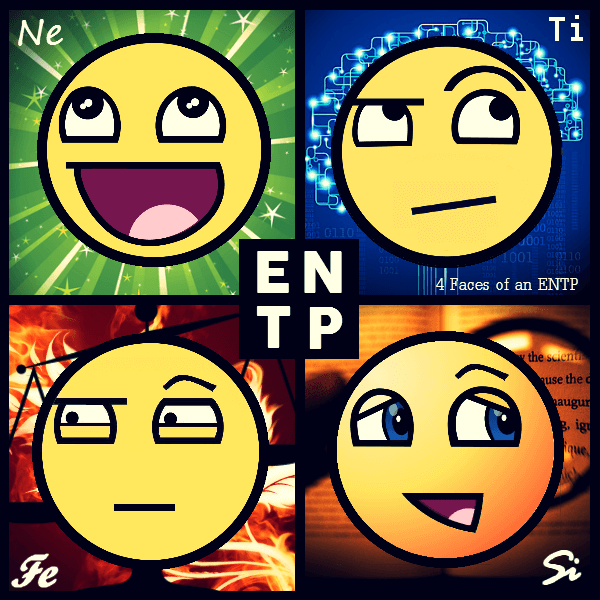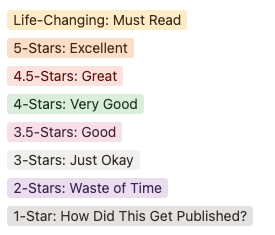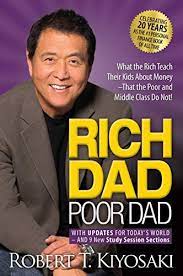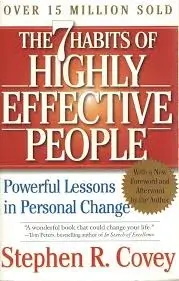ENTP: The Swashbuckler by Calise Sellers
RATING: 3.5-Stars: Good
Join the Always Do Newsletter for more book summaries and self-improvement tips
The ENTP Swashbuckler in 10 Words
ENTP Swashbuckler is fun, charismatic, outgoing – an adventurer and explorer.
High 5: Main Ideas and Key Points
- Personality types play a role in who we are and who we become, but they do not define us. You decide who you want to be. Personality is a skill and you can learn and improve with practice.
- ENTPs are fun-loving and love to explore their curiosities and the world around them.
- Most personality books and resources tend to focus on the behaviors of personalities, which leads to incorrect generalizations. Focusing on the underlying reasons why people do what they do is a more nuanced approach – cognition.
- The letters that make up your personality are just a way in which you naturally approach the world.
- Being an ENTP means that deep down, what matters most to you is exploring everything you can do to understand and improve the unique, awesome person you are.
The ENTP Swashbuckler in 4 Sentences
- This PDF is fun and simple to get through as far as personality types go.
- It is broken down into sections that outline each letter of the personality before merging them together to create a uniform outlook on each personality type.
- She focuses on cognition not behavior when looking at ENTPs and all the personality types. Behaviors change throughout a person’s life, but one’s cognition remains more stable over time.
- Cognition is the result of where you naturally focus your attention, your desires, and your interests. Regardless of what your momentary desires or interests may be, each of us has certain deep, secret hopes that mean more to us than anything.
Top 3 Quotes (to impress your friends)
- “What matters most to you is exploring everything you can do to understand and improve the unique, awesome person you are.”
- “As an ENTP Swashbuckler, your central fear, beneath all others, is that you are not good. That you are not reliable, not dependable, or responsible, that you explore too far and color too much outside the lines, and therefore that you are not a good or worthwhile person in the end. Again, anyone can have this fear. But for Swashbucklers, this worry is at the root of them all.”
- “As the ENTP Swashbuckler, perhaps nothing is more important to you than seeing, understanding, and adapting your own self in order to become the larger-than-life person you want to be. Cognitively, you focus on the potential use (NT) that people (EP) can have, most especially yourself. This causes you to think of everything in terms of how it applies to particular, real people you know, rather than to theoretical people as a trend. What matters most to you, deep down, is observing people and their motivations in order to understand them, derive the most benefit from them, and help yourself and others become everything you want to be as a person.”
2 Ways Knowing Your Personality Type Will Change You
- It will make you understand yourself a little better and why you do the things you do, from a cognitive approach to the world.
- You will probably find yourself relating to a lot of the ways in which your personality is defined.
1 Thing You Have to Implement After Reading The ENTP Swashbuckler (Or Your Personality)
- Remember that who you are is malleable – you can change not only your behaviors but how you approach the world. (This, I know from my current experience, is wildly true. You can transform every part of you. Even though you can’t stop your thoughts, you can slowly shift what they say over time.)
The Rating Explained
This got 3.5-Stars because, honestly, I just enjoyed it. It was easy for me to read and I enjoyed reading about, what felt like, myself. Inflated ego much? It was also the second book I read as I was easing into books again, and this one gave me a small win. And knowing what I know now, small wins are everything. Without them, you can never have any big wins. So, yeah, I enjoyed this one.
Who Should Read It?
- Anyone who is interested in personality. It is a blogger on the internet who put these together, but I enjoyed the candidness and feeling of accuracy in the read. Maybe not for everyone, but I enjoyed it.
- NOTE: I am aware that personality generalizations are what’s known as The Barnum Effect, however, I enjoy the personality genre when being a sucker.

ENTP Swashbuckler Summary, Review, and Notes
My summaries are organized by common ideas and threads not by chapter. I have found this to greatly benefit understanding and recall. They also include the essential lessons and key passages from the book. My Summary, Quotes, Notes, and Thoughts follow:
Extraverts (E)
- Being a cognitive Extravert has nothing to do with how social you are. Rather, it simply means that you naturally look outward at the world around you in order to form thoughts, decide on actions, and make judgments. You tend to observe, considering the opinions of others and the behaviors of your surroundings, and then you form thoughts from those observations.
- They prefer to have someone to bounce ideas off of, and can feel at a loss when left to decide on their own.
- Extraverts have a natural need for their efforts and successes to be recognized and praised.
- After looking outward to observe, Extraverts need to quietly process all the information they’ve gathered. They observe first, but afterward, they tend to become very thoughtful and introspective.
Perceivers (P)
- The project or goal isn’t the objective; learning and testing new tools is. Once they find out how well their new tool or idea works, their mind is satisfied; they got what they were really after from the experience.
- Therefore any attempt to force Perceivers to complete definite tasks will be difficult for them, because the completion of tasks wasn’t really what they were seeking in the first place. They may be led to feel guilty for leaving piles of projects “unfinished,” but in truth, their real goal was finished: the learning and testing of new tools.
- Perceivers are most productive when they’re allowed to see that productivity is measured not only by goals reached but also by tools perfected. With a growing arsenal of better, faster tools, Perceivers become more equipped to clear the way for others and show them better methods of completing projects and pursuing goals.
- The more Perceivers let themselves be Perceivers, the more they’ll naturally find themselves getting things accomplished. The more they allow their minds to focus on exploring new methods and approaches, the more they won’t be able to resist using those new and improved methods to knock out their goals at record speed! But if they feel guilted into suppressing their deep and necessary desire to find new tools, if they feel pressured into getting things done first, then their energy will be largely wasted and their minds will try to rebel against being forced to go forward using inferior tools.
- Watch out for this “paralysis by analysis,” focusing so much on potential solutions to a problem that you can’t manage to even begin to choose one! The ability to say, “You know what? I have several options here that may work, and they’re all too comparable to decide between them, so I’ll just pick one and use it!” is a powerful tool for Perceivers to add to their toolbox. Perceivers excel at adapting to new and changing situations, but there won’t be anything new for them to adapt to unless they take a leap and see what happens!
Extraverted Perceivers (EPs)
- Extraversion’s outward orientation combined with Perceiving’s constant desire to find and gather new tools makes EPs doubly observant in a way. They focus on gathering as many options as possible, from as many different external sources, before making a decision. This also makes them doubly reticent to solidify on a decision, since the making of a decision can seem a little too final, cutting off other potential options that seem too good to lose.
- Therefore, as an EP, recognize that it’s more responsible for you to slow down and play around with options! It is not responsible for you to hurry on and satisfy others by filling up checklists if it causes you to neglect your unique strength of seeing the possibilities that others might rush past.
- They have a natural ability to see and understand themselves and their own motives, which can often result in a healthy surge of self-love.
- As an EP, look inward, recognize that it’s most responsible for you to observe and experiment with options rather than rush forward with checklists and goals, and as you do, you’ll be excited to observe yourself, love yourself, and so lift the lives of everyone you interact with.
- Healthy EPs are naturally able to see right to the core of people with speed and surety that might seem reckless to others.
Intuitives (N)
- Being an iNtuitive simply means that you see the world primarily in terms of concepts and ideas. This focus on concepts and ideas naturally results in seeing all the world as an interconnected web, as every idea flows into every other.
- iNtuitives thus try to understand things from as many sides as possible, forming complex opinions that try to reflect all the interconnected grandeur of their conceptual webs.
- The more an iNtuitive lets themselves be an iNtuitive, seeing all the inter-connected conceptual nature of everyone and everything, the more practical, appreciative, and effective they’ll become in all their hopes and ideals.
Thinkers (T)
- Being a Thinker simply means that you focus first on the use of things, before considering their intrinsic meaning. Everyone looks at both use and meaning, but Thinkers focus first and foremost on all the varied uses for ideas, possibilities, and people.
- This means that Thinkers want things, people, events, and the whole world to live up to the abilities that they see in them. Any person or thing that doesn’t live up to its potential abilities is failing in its possible use, which will naturally be especially disappointing to a Thinker.
- With iNtuition viewing life as an interconnected web of concepts, iNtuitive Thinkers naturally focus on how the use of each thing connects with the use of everything else.

Cognition Steps for ENTP
- As an ENTP, your first cognition step is Observation of the world and especially of people, their motives and workings and desires, because that’s what matters most to you! You look outward and see patterns and connections (Ne, or extraverted iNtuition) which weave together into a vast, detailed tapestry of the workings of people and the world in general.
- Secondly, you turn inward to draw conclusions about the usefulness of everything you’ve observed (Ti, or introverted Thinking).
- Thirdly, you take all this useful Data and draw from it overarching Principles of how the world works, by looking outward and seeing the meaning, significance, and intrinsic preciousness of things in a way that’s universally applicable (Fe, or extraverted Feeling).
- Fourthly and finally, from these universal Principles you decide on Action and form opinions, by playing out specific scenarios of experiences in your head to see what seems like the best option (Si, or introverted Sensing).
Action is your fourth and final cognition step because it’s what you focus on the least. This makes it the weakest of your cognitive steps. As you observe the world and people, you tend to see so many options that it’s hard to decide on just one! And when you do decide, you may find out that it would have been better to have chosen something else. This is nothing to be embarrassed about.
Focus on your strength of Observing people and their motives; as you do, your weakness in choosing the correct Action will grow stronger of its own accord. And remember, if actions go wrong, they can often be fixed! Beware of getting down on yourself about Action; enjoy seeing and understanding people and the world, and then you’ll learn how to find greater new uses for yourself, your ideas, and all your interactions with everyone.
ENTP
- As an ENTP, your entire cognition revolves around your unique combination of these cognitive variables: the EP Scope focuses on people and their motives, and the NT Objective seeks the use of things as they could be.
- As the ENTP Swashbuckler, perhaps nothing is more important to you than seeing, understanding, and adapting your own self in order to become the larger-than-life person you want to be. Cognitively, you focus on the potential use (NT) that people (EP) can have, most especially yourself. This causes you to think of everything in terms of how it applies to particular, real people you know, rather than to theoretical people as a trend. What matters most to you, deep down, is observing people and their motivations in order to understand them, derive the most benefit from them, and help yourself and others become everything you want to be as a person.
- ENTPs live by eliciting reactions from people and even from objects, in order to see how they’ll wiggle in response. They develop complex systems of useful toys and tools as a result of seeing how the world around them reacts to new things they try.
- ENTPs will do whatever works, break rules, adapt, and explore, with a little sarcasm or snark thrown in as yet another tool, ever unpredictable as they constantly watch for how the world will respond.
- Your entire specialization is about exploring reactions in order to understand and surpass the limits of what you and everyone can become and use.
- Healthy Swashbucklers do care intensely about others’ thoughts and opinions; that’s a side effect of observing reactions! Yet you also care enough about becoming the fullest version of you, that you’re willing to work much harder at it.
- Let yourself be the Swashbuckler you are, swing in with dynamic flair and see how the world reacts, and do it in your own personal way. As you do, you’ll implicitly give others permission to break free of their own limitations and find their own selves with greater color and conviction.
ENTP Fears & Weaknesses
- As an ENTP Swashbuckler, your central fear, beneath all others, is that you are not good. That you are not reliable, not dependable or responsible, that you explore too far and col- or too much outside the lines, and therefore that you are not a good or worthwhile person in the end. Again, anyone can have this fear. But for Swashbucklers, this worry is at the root of them all.
- With ENTPs’ weakest cognition step being Action via Sensing, Swashbucklers naturally fear that their actions, and their understanding of the resulting consequences, are especially lacking. Specifically, they worry that their actions lack all-important usefulness (T), in an experiential way (S). You fear that for all your good intentions, your actions will still fall flat, cause damage, or simply go wrong. That your actions won’t be of use in real-life experience. This unconscious worry that your actions are not ST enough results in the fear that you are unreliable, irresponsible, or even dirty, and therefore not a good person worthy of being loved or even liked.
Secret Paradoxitype
- So for you as an ENTP Swashbuckler, your secret, inner Paradoxitype is the INFJ Paladin!
- Zoom out farther and farther, then bring the loftiest principles to bear on your normal, daily needs. Let yourself be cosmic in perspective yet practical in application. Indulge your inner sage. Believe you can be heroic. The more you let that secret Paladin come out in all you do, the more you’ll naturally stand tall as a colorful Swashbuckler with unprecedented strength, complexity, compassion, and genuine happiness.
Stand tall as you, as the Swashbuckler you are, with your own style, your own experiences and insights, and particular skills. Just be you, and learn how to get out of your own way. You can be a hero. You can shine with the style and swagger of everything you’ve ever wanted to be, and help everyone you meet do the same. The more you grow into the full measure of the ENTP Swashbuckler you’ve already always been, the more successful, fulfilling, and irrevocably happy you can become, because it will just be who you are.
If You Liked This ENTP Personality Type Summary Then…
- The Alchemist by Paulo Coelho (Print | Ebook | Audiobook): Of course, The Alchemist isn’t about personalities, but it is a read that will have you diving deep into your own soul and questioning, “Who am I? What do I really desire?” and those questions lead to great wonders.
- How Emotions Are Made: The Secret Life of the Brain by Lisa Feldman Barrett (Print | Ebook | Audiobook): This will give you a look into how emotions are really formed and thus, how we act in the world as a response. Her stance might explain what personality really is, and how it begins.
Related Topics
30 Days of Audible…Free
My Book-Rating Scale

Now, we are on the same page.
*If you use the affiliate links in here a magic genie will suddenly appear in front of me granting me unlimited wishes, at which point I will then immediately wish for something like 100 billion dollars, a submarine, a funny hat, or something cool like that. So just assume that if you use the links to buy anything I make tons of money and become filthy rich. Besides this last statement, I practice radical honesty, and anything I ever recommend is something I stand by.









